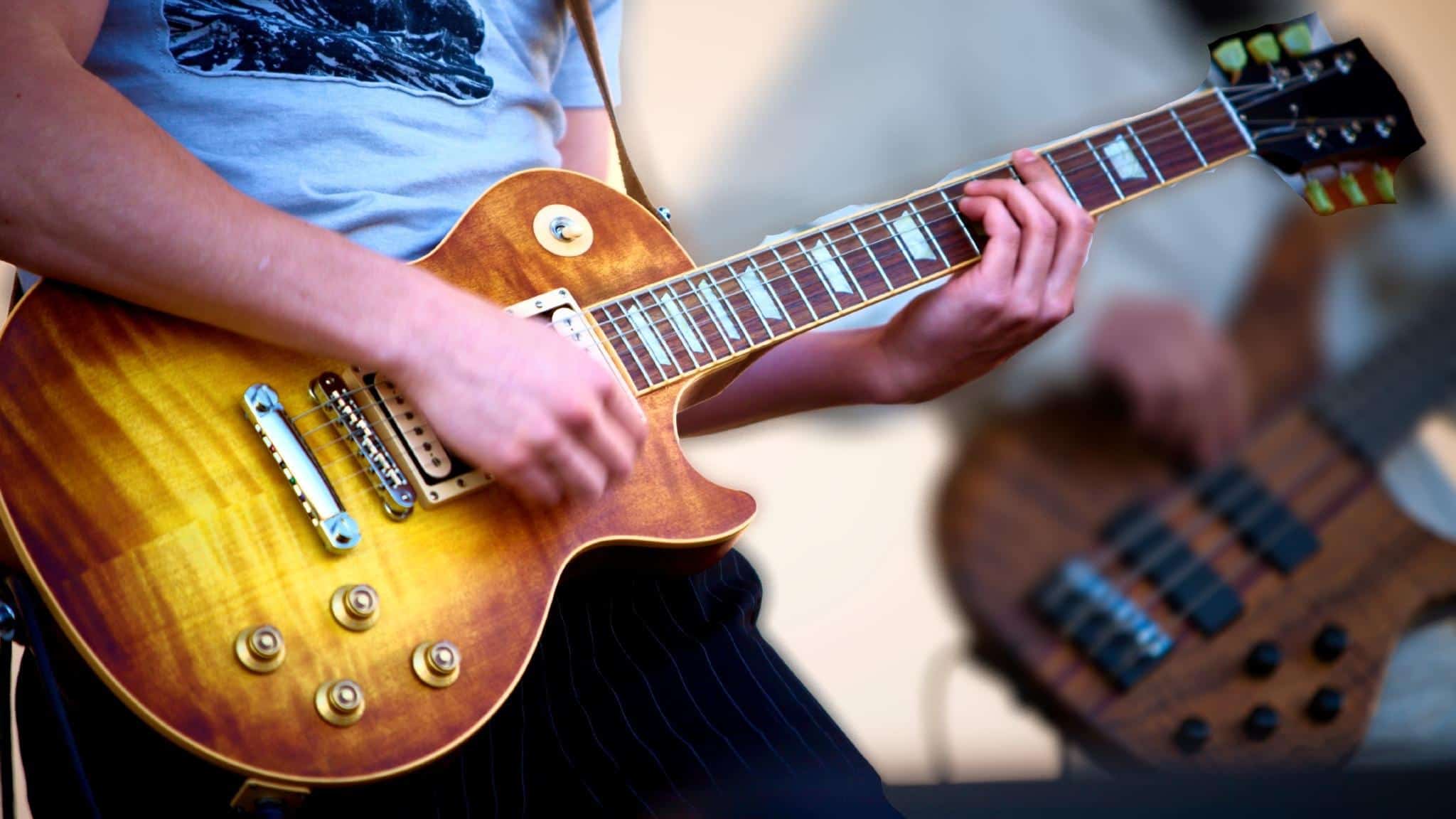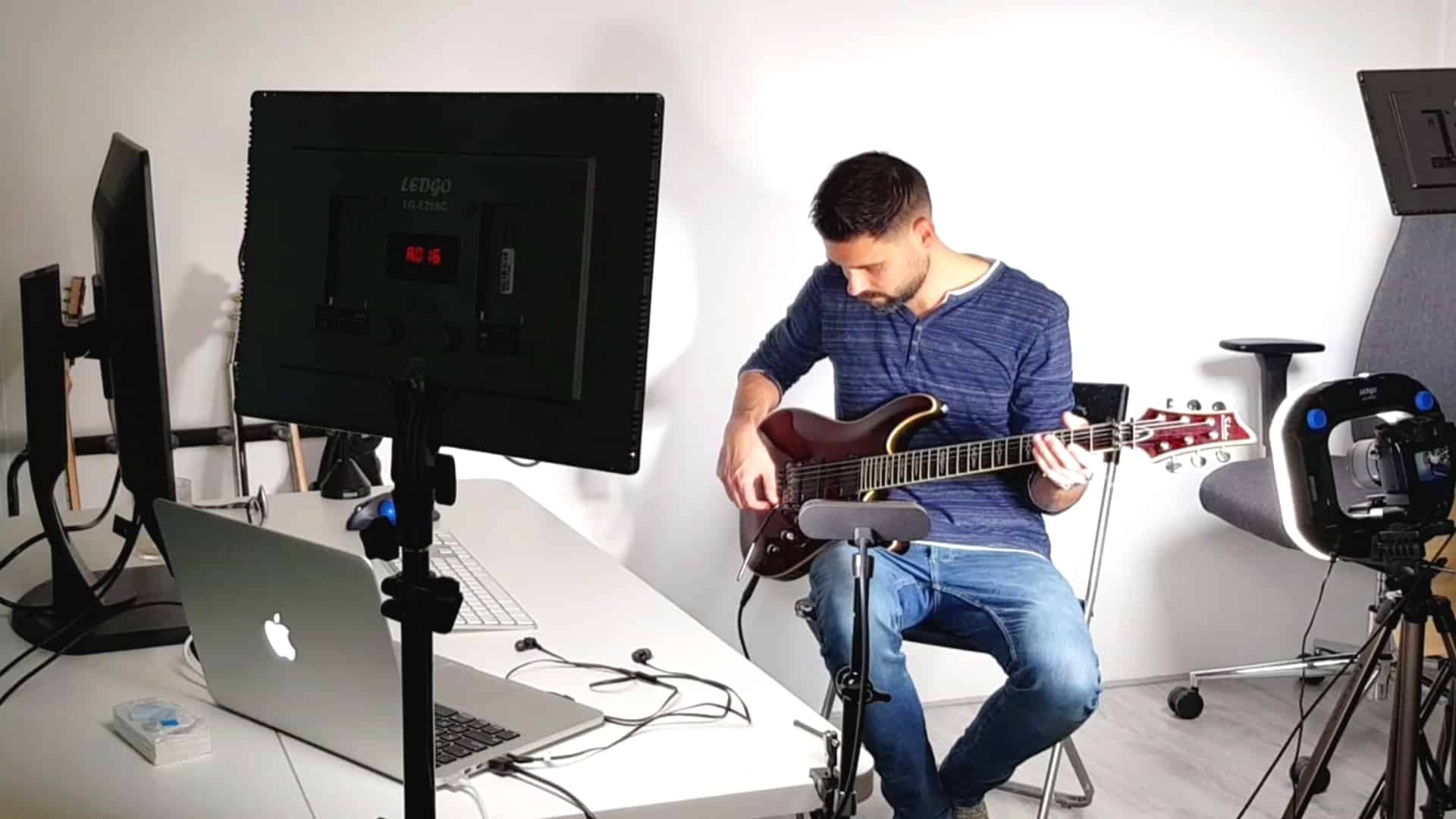Lead guitar is a guitar part which plays melody lines, instrumental fill passages, guitar solos, and occasionally, some riffs within a song structure.
The lead is the featured guitar, which usually plays single-note-based lines or double-stops.
In rock, heavy metal, blues, jazz, punk, fusion, some pop, and other music styles, lead guitar lines are usually supported by a second guitarist who plays rhythm guitar, which consists of accompaniment chords and riffs.

The role of the lead guitar in a band
The role of the lead guitar in a band is to provide the main melody or solos. In some cases, the lead guitar may also play rhythm parts.
The lead guitar player is usually the most technically proficient member of the band, and their performance can make or break a song.
How to play lead guitar solos
There is no one correct way to play lead guitar solos. The most important thing is to find a style that works for you and practice regularly.
There are many different techniques that can be used to play lead guitar solos, such as bending, vibrato, and slides.
Some tips for playing lead guitar solos
- Start by practicing the basic techniques. Make sure you can do them cleanly and accurately before moving on to more difficult techniques.
- Find a style that suits you. There is no correct way to play lead guitar, so find a style that you are comfortable with and stick to it.
- Be creative. Don’t be afraid to experiment with different sounds and ideas.
- Practice, practice, practice. The more you play, the better you will become at lead guitar.
- Listen to other lead guitarists. Not only will this help you improve your playing, but it will also give you some ideas for your own solos.
While many people think of the lead guitar as simply being the highest sounding part in a song, it is so much more than that.
A lead guitar player needs to have a firm understanding of melody, harmony, and chord progressions in order to create their parts.
They also need to be able to improvise and come up with new ideas on the fly, as well as have the ability to play over any type of backing track.
The most important thing for a lead guitar player to remember is that they are there to support the song, not steal the show.
With that in mind, they should always be working towards creating parts that compliment the rest of the band and help drive the song forward.
Tips for becoming a better lead guitarist
- Play with other musicians as often as possible. This will help you learn how to interact with other instruments and create parts that complement each other.
- Listen to a wide variety of music. Not only will this help you find your own style, but it will also give you a better understanding of how music works in general.
- Be patient. Learning to play lead guitar takes time and practice. Don’t get discouraged if you don’t progress as quickly as you would like, just keep at it and you will improve.
- Get a guitar teacher. A good guitar teacher can teach you the basics, help you develop your skills, and give you feedback on your playing.
- Be open to criticism. Not everyone is going to like the way you play, but that’s okay. Use constructive criticism to help you improve as a player.
Famous lead guitarists and their work
Some of the most famous lead guitarists include Jimi Hendrix, Eric Clapton, and Jimmy Page. All of these musicians have made a significant impact on the world of music with their innovative and technical playing.
- Jimi Hendrix is considered to be one of the greatest guitarists of all time. He was known for his unique style of playing, which incorporated feedback and distortion. Hendrix was also one of the first guitarists to use the wah-wah pedal, which helped create his signature sound.
- Eric Clapton is another legend in the world of guitar. He is known for his bluesy style of playing and has been a major influence on many other guitarists. Clapton is also famous for his work with the band Cream, where he popularized the use of guitar effects such as distortion and delay. I’m not a big fan of Eric Clapton though, it just isn’t my style of playing. And it isn’t random that his nickname is “slow hands”.
- Jimmy Page is best known for his work with the band Led Zeppelin. He is considered to be one of the most influential rock guitarists of all time and has helped shaped the sound of hard rock and heavy metal. Page is known for his use of unusual guitar tunings, which helped create the distinctive sound of Led Zeppelin.
While these three guitarists are some of the most famous, there are many other great lead guitarists out there.
Conclusion
So, what is lead guitar? Simply put, it is the highest sounding part in a song.
However, there is so much more to it than that, but it’s often referred to as the player that “takes the solo”.
I'm Joost Nusselder, the founder of Neaera and a content marketer, dad, and love trying out new equipment with guitar at the heart of my passion, and together with my team, I've been creating in-depth blog articles since 2020 to help loyal readers with recording and guitar tips.

